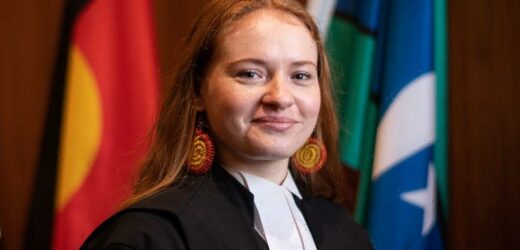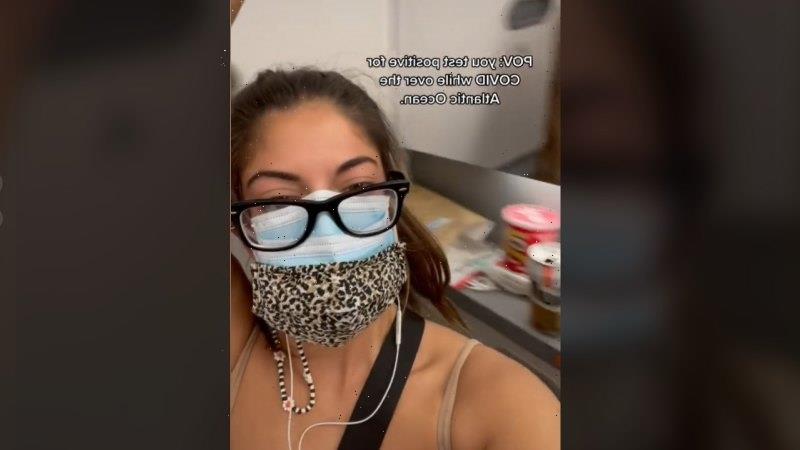Neane Carter has been a witness to the law for as long as she can remember.
As a baby, she was part of the native title movement in northern Victoria with her “very loud, very proud” activist parents Rodney, a Yorta Yorta and Dja Dja Wurrung man, and Jimealie, a Wamba Wamba woman. And as a young woman she was urged by an aunt, magistrate Abigail Burchill, to use her connection to the law to help her community.
Neane Carter is an associate at the County Court.Credit:Eddie Jim
Yet like many Indigenous Australians, she has family members who have been incarcerated. And as she considered a career in the law, she grappled with the idea of becoming involved with a system she felt had created more harm than good for her people.
“I think I had gone in with this perception that the legal profession is this elitist community and me and my people aren’t part of that community, and we never will be,” Ms Carter said.
“It’s difficult to be part of something that you know has been so horrific for your people.”
Today, Ms Carter has put any doubts behind her. As an associate to a County Court judge, her job is to ensure hearings run smoothly and that Judge David Purcell is briefed before every case, and to liaise with the lawyers who appear. It’s a sought-after position for aspiring lawyers and a literal front-row seat to see the law in action.
Ms Carter credits her involvement in a program for Indigenous law students for helping her earn the position. The program – which comprises either hands-on experience as a court clerk or matches participants with barristers who act as mentors – aims to enhance learning and break down any misconceptions students have about the justice system.
The Victorian Bar, the association for barristers, has run the program for 15 years with the Supreme and Federal courts, and from 2022 it will expand to the County Court and accept six applicants a year, up from three.
The program also attempts to address the imbalance of Indigenous representation in the legal system.
First Peoples account for 3 per cent of Australia’s population but make up more than one-quarter of national prison numbers.
The Victorian Aboriginal Legal Service says Indigenous people make up fewer than 1 per cent of the state’s lawyers, and there are only five Indigenous barristers.
Victorian Bar president Roisin Annesley, QC, said the mentor program supported and embraced students’ cultural backgrounds, and the legal sector also had much to gain.
“There are significant benefits to the profession as members gain an insight into the challenges Indigenous law students face and learn more about their culture and lived experiences,” she said.
Ms Carter said her 2018 involvement in the clerkship program afforded her a culturally “safe” environment to gain experience and the confidence to apply for her current role, in which Judge Purcell’s counsel has been invaluable. After her past uncertainty about a career in the law, she has been encouraged to become a voice for her communities.
At 24, she is unsure what area of the law she will eventually focus on, but she aspires for self-determination for Indigenous communities to address imbalances in employment, health, housing and incarceration, and to encourage others to pursue opportunities they normally wouldn’t consider.
“It’s not so much about having an Indigenous lawyer represent you, but it’s about having educated blackfellas who are able to dismantle these systems … that’s the bigger issue at hand,” she said.
The Morning Edition newsletter is our guide to the day’s most important and interesting stories, analysis and insights. Sign up here.
Most Viewed in National
From our partners
Source: Read Full Article


